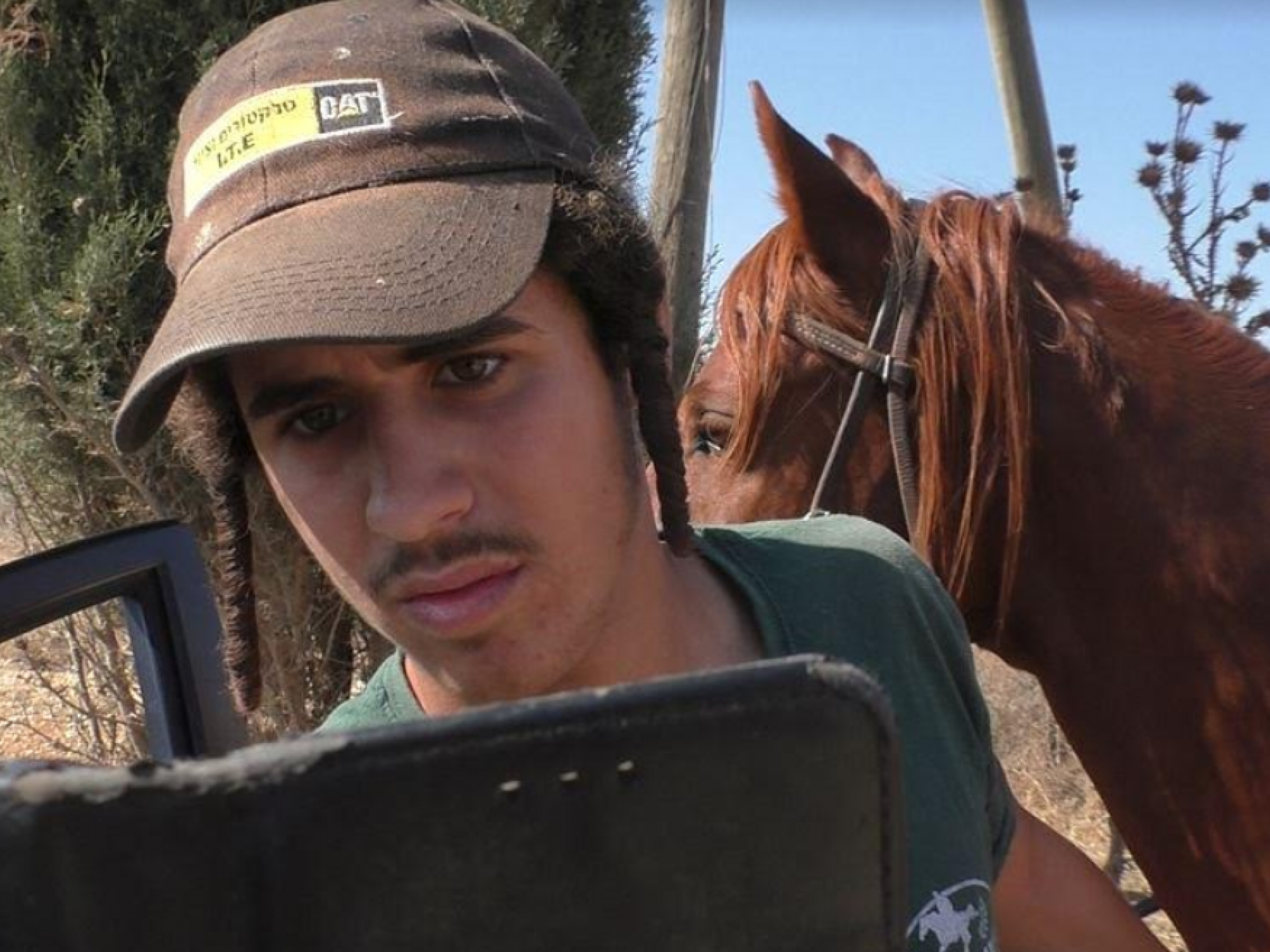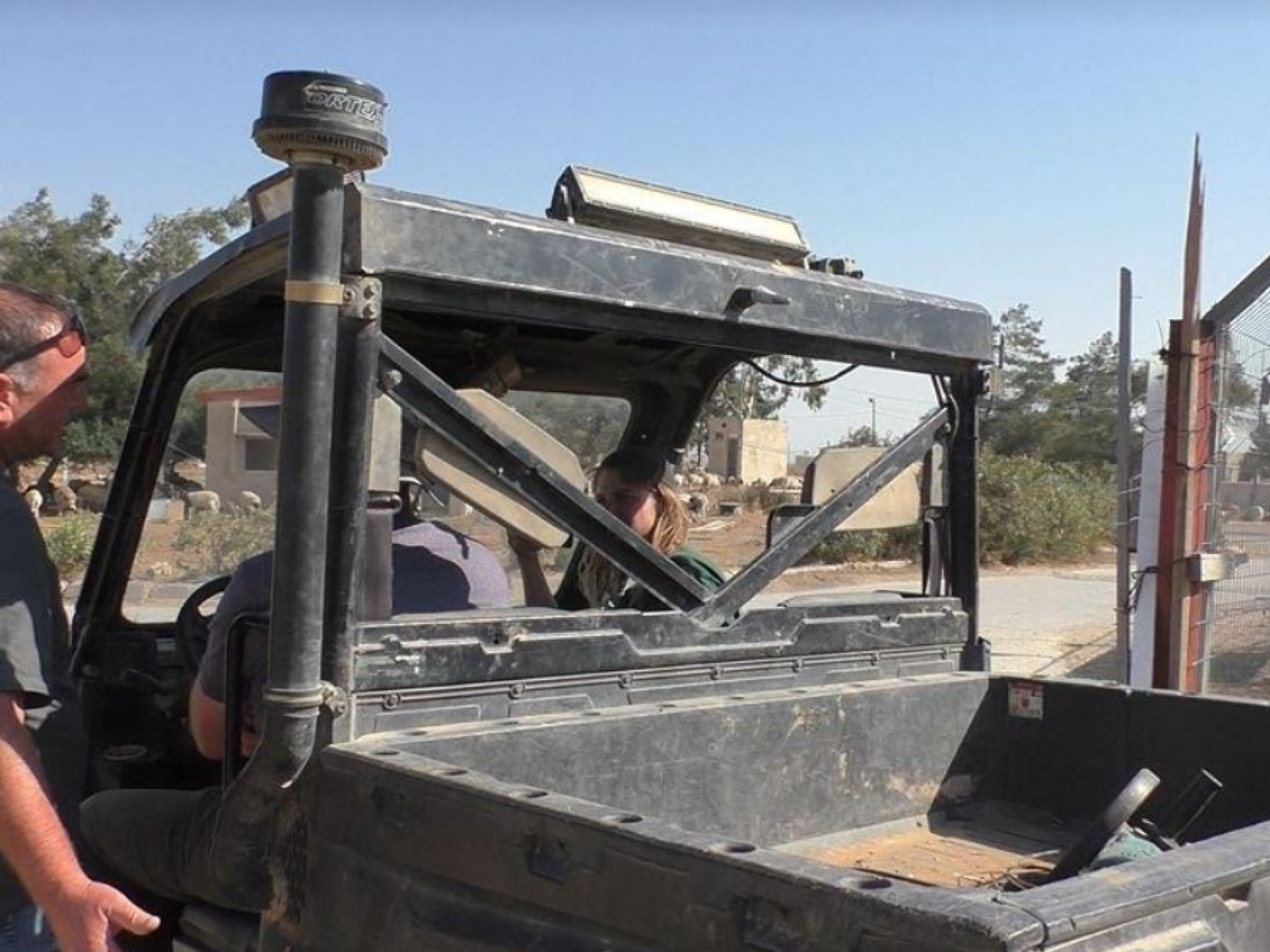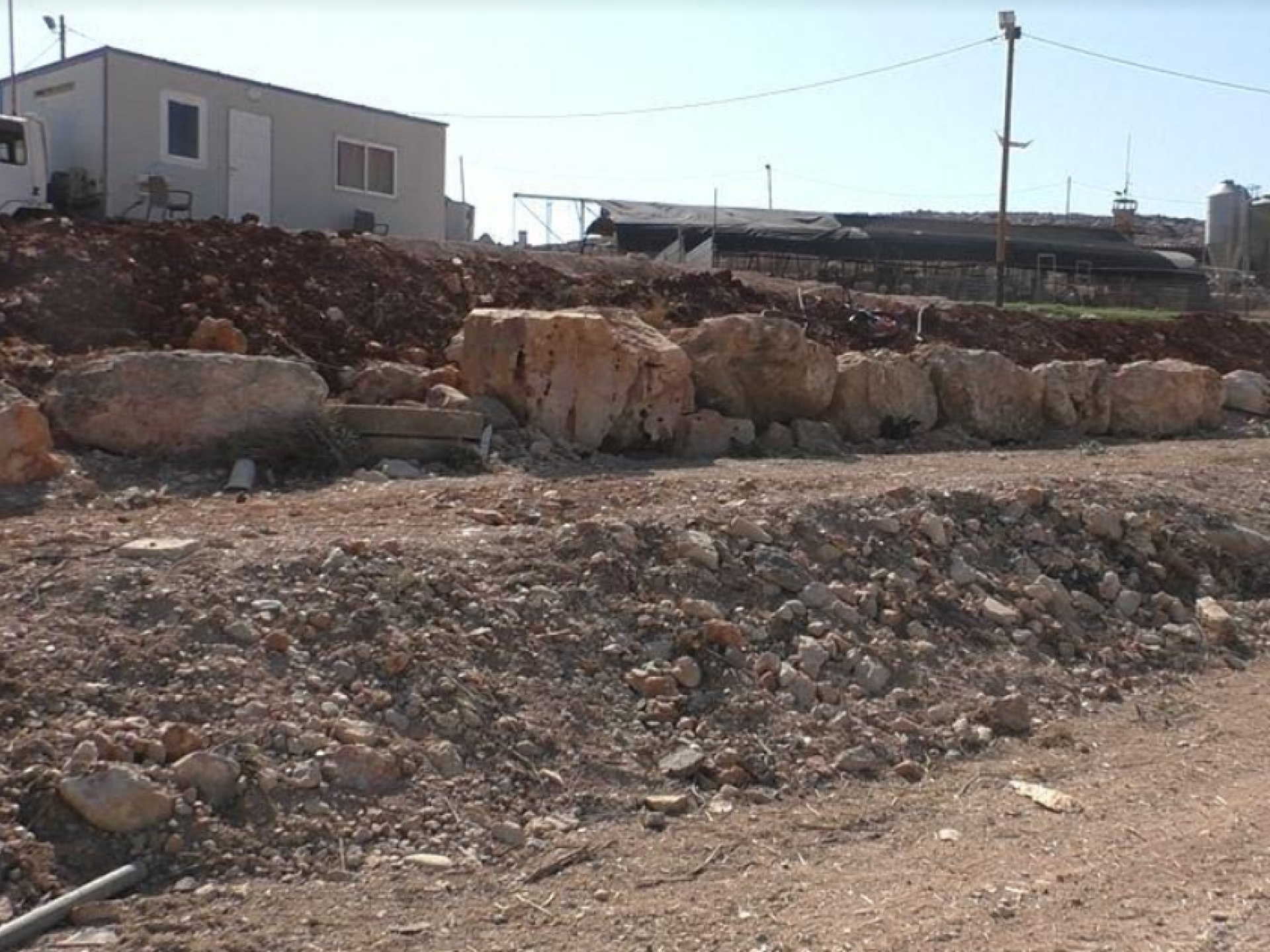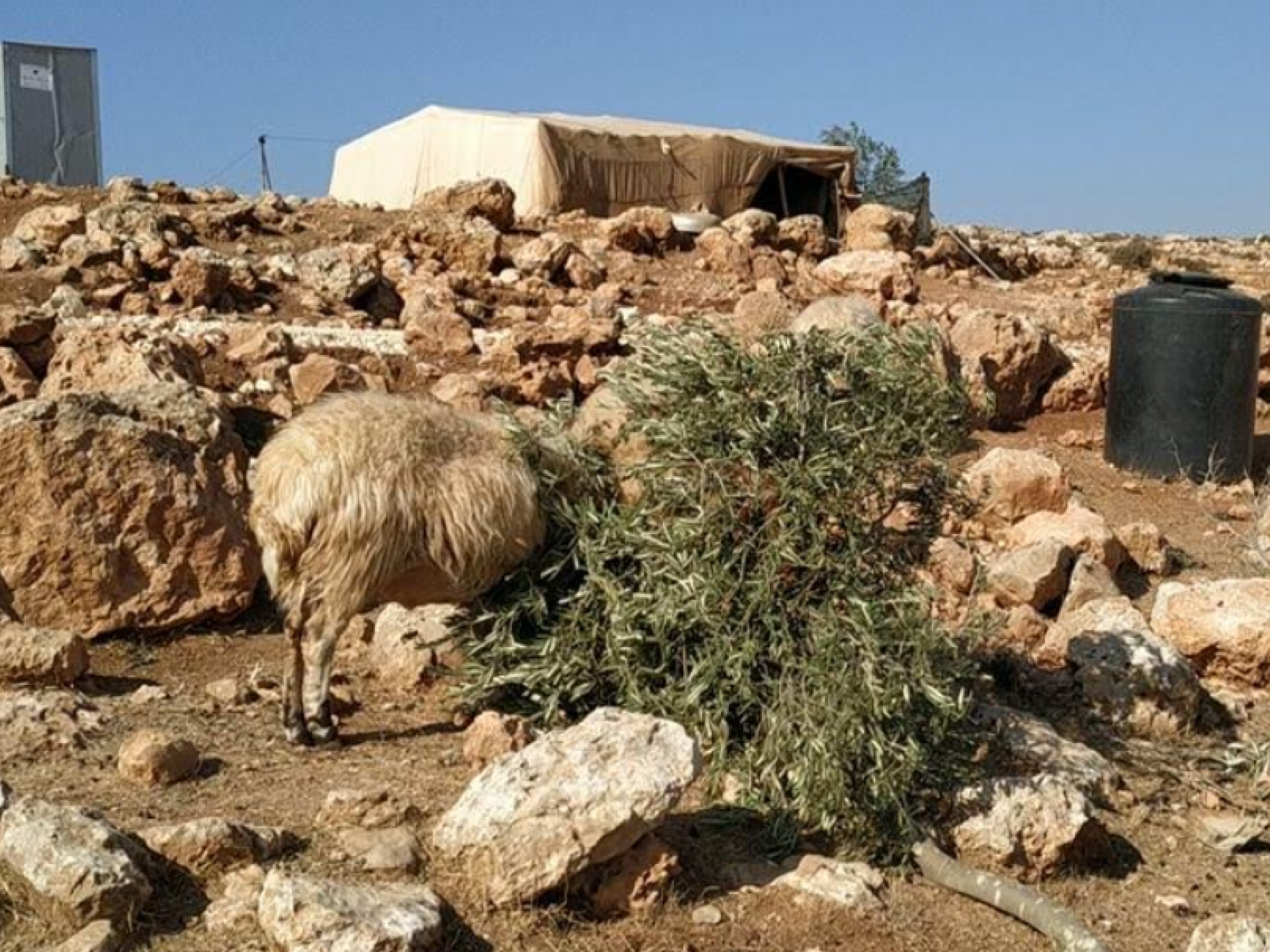Jordan Valley: On the "Peace Angels" outpost who are sabotage angels
We were planned to meet at 5:30 a.m. at the Rosh Ha-Ayin train station. We drove in Amir’s spacious car towards Rashash, opposite the town of Duma. From the main road, after passing the entrance to Duma, there is is a turnoff to a dirt track eastward with a sign En Rashash in Hebrew. After turning left, eastward, we see a track with some white grave that allows us to drive fairly comfortably. Not knowing the way, we made some mistakes but aided by Nurit’s memory and sense of orientation we did arrive at the Rashash encampment just a little late. Mussa had already left with his flock, and Amir and Sabi rushed to join them. They reported to Nurit and me that the hike to the grazing ground was rather tough, they climbed up and down rocky hills, and suggested we hang out among the tents and get to know the women, while they accompany the shepherds. According to their reports, there were two “hills youth” out on the ground, one on a mini-tractor and the other on horseback, both with long curly side-curls (usual mark of the wild religious-national activists here, who routinely harass the Palestinians), one with a reddish beard. (a detailed report on the shepherd accompaniment itself will be written separately by Amir). The idea was excellent – to get to know an unfamiliar community and hand them over what we brought with us in the car (shoes and clothes, always needed here).
Nurit and I entered Sara’s and Mussa’s tent. Poverty is immediately visible. We met the friendly mother, Sara, and 13-year old Raida. We were sorry to hear that she no longer attends school for her mother Sara wants her help at home. Beside the daughter there was also a 1.5-year old son – Mohammad. As soon as we introduced ourselves by names and as friends of Guy and Arik (Asherman), the usual suspicions when unfamiliar Israelis arrive was dispelled. A broad smile spread over Sara’s face and she was happy to greet us. We managed to conduct a conversation with our broken Arabic. Sara told us she has another daughter, Maryam, and more sons – in Duma – at kindergarten and school. We asked how they get there and they told us that all three children ride one donkey to school… (I thought it great fun to ride a donkey to school. When my life-partner Shlomo was of school age he used to ride a donkey from his village of Giv’at Chen to school in Ra’anana, and the donkey waited for him tied patiently by the schoolhouse. Will the destiny of Rashash children be as good as that of the children growing up near Ra’anana…?)
Despite the poverty visible in the tent, Sara naturally offered us sweet tea, a delicately thin flat bread of her own baking, and a dish with olive oil, sardines, tomatoes and sliced cucumber. We ate a little, thanked her, left a lot, and again appreciated the customary hospitality that Palestinians had inherited from our shared forefather Abraham. Sara told me that they bring water in tanks from En Samiya, 10 km from their encampment. This is why it is so expensive: 25 shekels a container.
We walked around and saw a large cart loaded with many olive tree branches. Women stood on the cart and scattered the large branches near some tents. We saw sheep arriving and feeding on the green leaves. People explained that they purchase the branches from farmers at Turmus Aia (a village not far, on the other side of the road). Immediately after the olive harvest, like all olive growers the world over, people trim their olive trees in order to increase the next harvest.
We explained to ourselves that the soft branches and leaves feed sheep that at this season can only graze on dry plants that do not contain protein and other nutrients. The shepherds supplement the sheep’s nutrition with wheat grains mixed in water prepared in troughs, as well as the green leaves of olive branches from Turmus Aia groves. The dry part that is not eaten by the sheep is used by Rashash residents as kindling for cooking and heating in the winter. This is a wonderful example of recycling and maximal use of natural resources in farming. While wandering around the encampment we met another family working in scattering of olive branches. Everywhere people were friendly and glad to see us. At 9:30 a.m. we were told by Amir and Sabi that they were already on their way back to the encampment with the shepherds and the flocks. We returned to Sara’s and Mussa’s tent, Amir and Sabi took out of the car the rest of the things we had brought them – among others, toys for little Mohammad and his brother who had already returned from kindergarten. Sabi brought them a beautiful kite and tried to fly it near the tent. The wind was poor and success was meager, but the joy was great.
We took leave of our hosts and got on our way back. Amir, Nurit and I wanted to enter the Jewish settler-colonist outpost right above the Rashash encampment. Sabi wouldn’t, but had to come in with us. The outpost (whose name I still don’t know, and someone thinks it’s called “Angels of Peace”, whereas we nicknamed it “Angels of Destruction”) is situated in a former army camp, totally destroyed. Then we saw the two side-curl youngsters, the one on horseback and the other on his mini-tractor, who had harassed the shepherds. They approached us immediately and blocked our way out of the outpost. Amir spoke to them very assertively and forced them to let us out. Sabi was angry and said we shouldn’t do things that were useless. If they remain useless in the future, time will tell…
On our way back we stopped to eat at Huwarra town, and met our old friend Munir.
We returned to Rosh Ha-ayin at 1 p.m.




